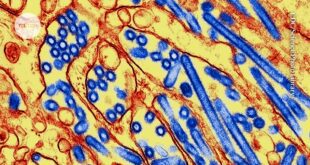CEMASTEA Rolls Out Mentorship and Outreach Program for STEM Subjects
The Centre for Mathematics, Science and Technology Education in Africa (CEMASTEA) has launched a mentorship and outreach program aimed at motivating learners to excel in Science, Technology Education, and Mathematics (STEM) subjects in schools. Through the initiative, the State Corporation seeks to empower teachers across the country to deliver on these subjects and spark interest in learners to support the government’s development and industrialization agenda.
The Initiative
CEMASTEA National Trainer Martin Mungai said the State Corporation, domiciled in the Ministry of Education, had identified gaps in teaching methodologies through working with teachers. He added that through the outreach program, teachers are exposed to various models and resources that can be used to teach these subjects.
The models, designed to simplify various concepts in Physics, Biology, Chemistry, Mathematics, robotics and coding, Climate Change, and Education for Sustainable Development (ESD), aim to regenerate interest among learners. CEMASTEA is empowering teachers with the skills to use locally available resources to develop the models, which aid in practical learning.
The Practical Approach to Teaching STEM
Mungai said, “We realized that the biggest challenge was the lack of a practical approach to teaching STEM subjects. We are, therefore, demonstrating how teachers can use locally available resources to teach a concept in a very practical manner.”
The goal is to renew interest in the subjects by demonstrating their importance to students to encourage as many students as possible to pursue them. But Mungai added, “As a country, we may not have an opportunity to advance as fast as countries in the West if we do not embrace STEM subjects. So, there is a need to continually encourage our learners to show them the importance of STEM in the country’s development.”
The Outreach Activities
During an outreach program at Ken Obura Secondary School in Kisumu, Mungai said hands-on activities with students would enable teachers to unpack concepts in easy and practical ways. “We are trying to connect what they are learning in class to the outside world and the opportunities available if they take up these subjects,” he added.
CEMASTEA targets to reach at least 50 schools across the country this financial year, expressing optimism that the outreach program will have a ripple effect on performance in the subjects.
Closing Remarks
Elvira Gero, a Mathematics and Physics teacher at Bishop Abiero Shauri Moyo Secondary School, said the CEMASTEA approach was set to transform how the subjects are taught in secondary schools. “Most of us teachers are competing with coverage of the syllabus, so we tend to overlook some practicals. Today I have learned that if you approach a topic in a practical way, it is grasped faster than when you just do theory,” she said.
The sensitization by CEMASTEA on the use of locally available resources to come up with teaching aids to demystify concepts in science and mathematics, she added, would go a long way in boosting performance in the subjects.
 Mind Uncharted Explore. Discover. Learn.
Mind Uncharted Explore. Discover. Learn.
